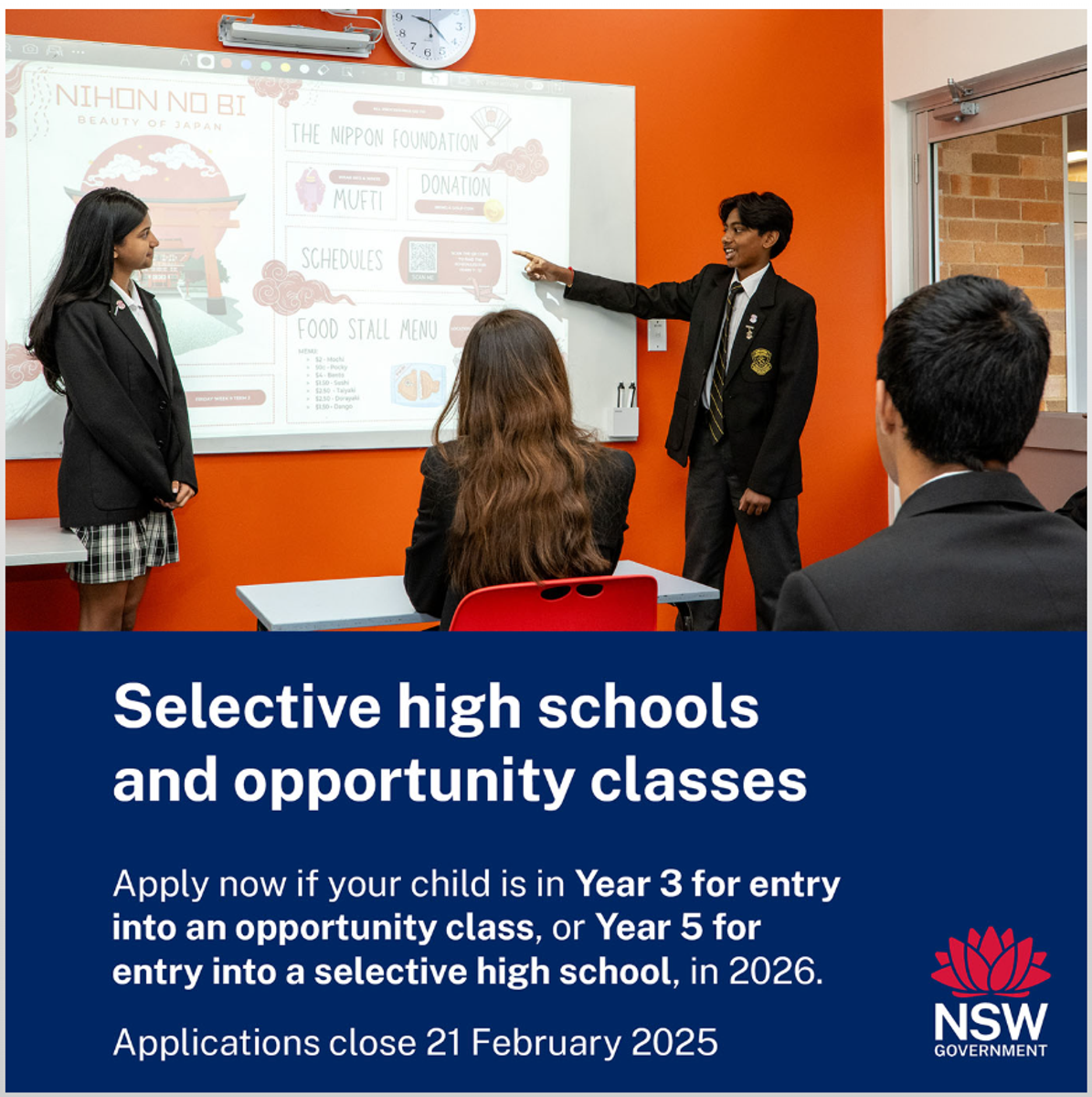Principal's Update
At Dundas Public School we do our best always

Principal's Update
At Dundas Public School we do our best always
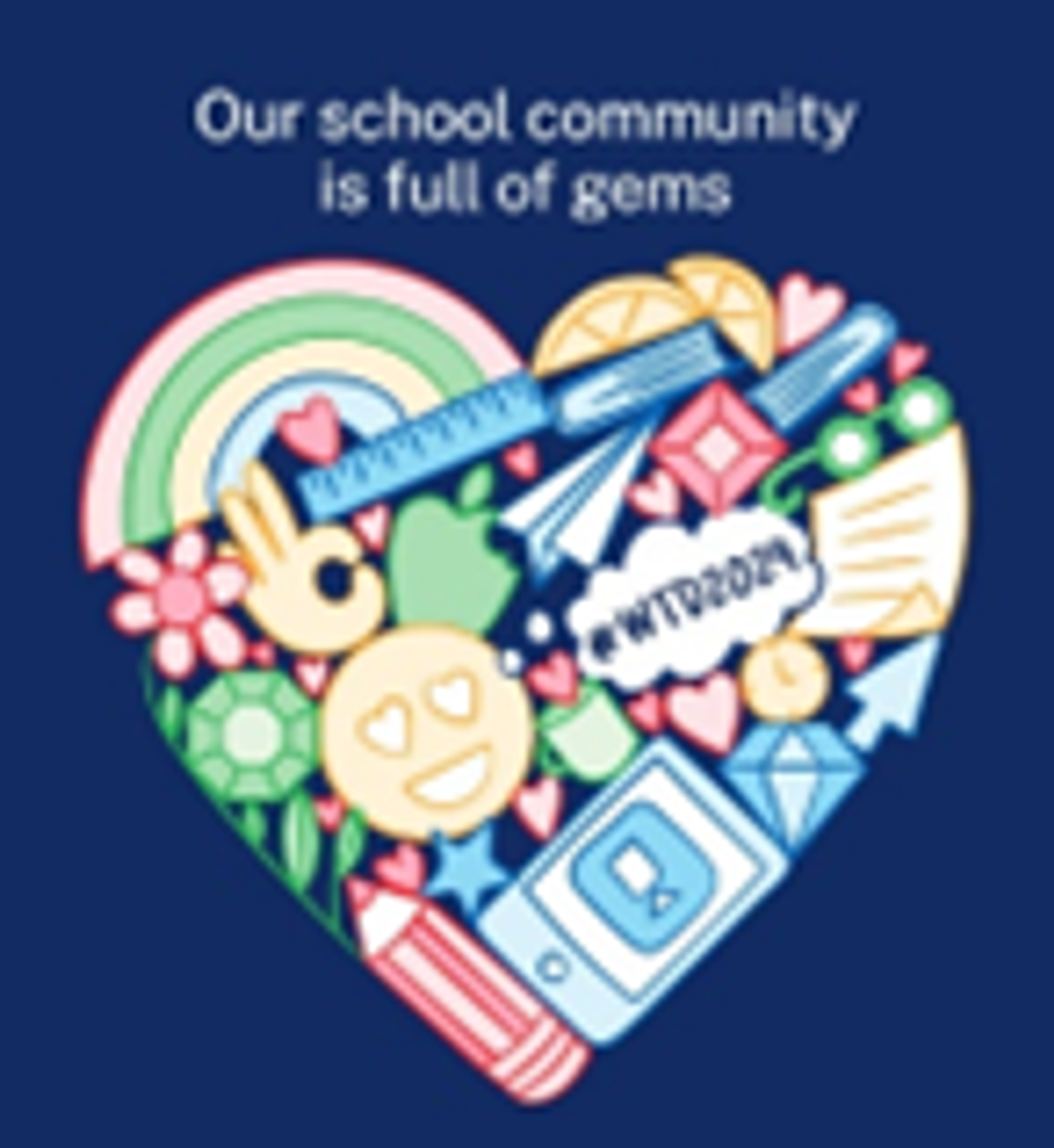

As we approach the end of another remarkable year, I want to take a moment to reflect on our journey together and express my heartfelt gratitude to each one of you. This year has been filled with challenges, achievements, and countless memories that have strengthened our community.
To our dedicated teachers and staff, thank you for your unwavering commitment and passion for education. Your hard work has inspired our students to reach new heights and fostered a nurturing environment where learning thrives.
To our students, you have shown resilience, creativity, and enthusiasm in your pursuits. Your growth and accomplishments fill us with pride, and we are excited to see what the future holds for each of you.
To our families, thank you for your support and partnership. Your involvement and dedication play a crucial role in the success of our school community.
As we celebrate the festive season, may this time bring you joy, peace, and moments of reflection with loved ones. Let us embrace the spirit of giving and kindness, cherishing the connections we’ve built.
Wishing you all a Merry Christmas and a Happy New Year! May 2025 bring new opportunities, growth, and happiness to our school community. I look forward to what we will achieve together in the coming year.


As we reflect on the past year, I would like to take a moment to express my heartfelt gratitude to our outstanding 2024 student leaders. Your dedication, enthusiasm, and commitment have not only inspired your peers but have also significantly contributed to our school community. Your leadership has made a lasting impact, and we are proud of the accomplishments you have achieved together.
As we look forward to the new year, it is with great excitement that we welcome our 2025 student leaders. You are stepping into a role filled with opportunities to make a difference, and we believe that each of you has the potential to lead with creativity, compassion, and integrity. We look forward to your fresh ideas and the energy you will bring to our school.
Together, let us continue to foster an environment of collaboration and support, where every voice is heard, and every student can thrive. Thank you once again to our outgoing leaders, and a warm welcome to our new leaders. Here’s to a fantastic year ahead!
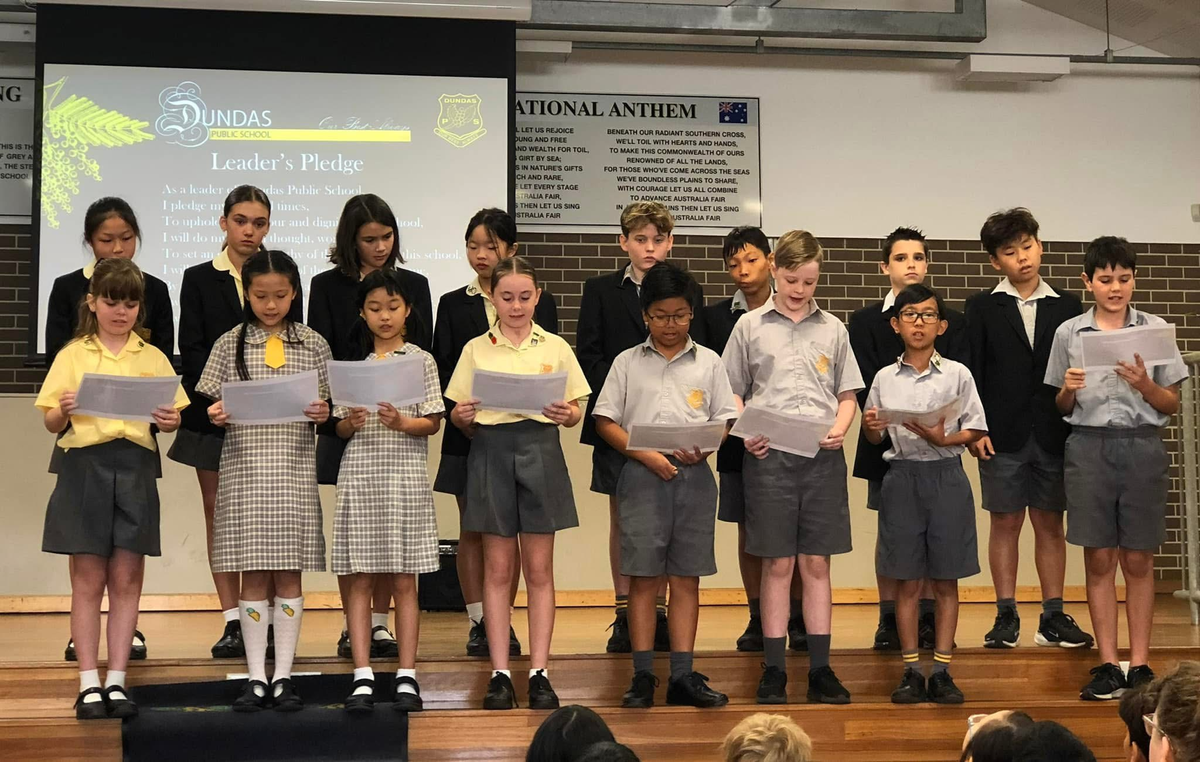

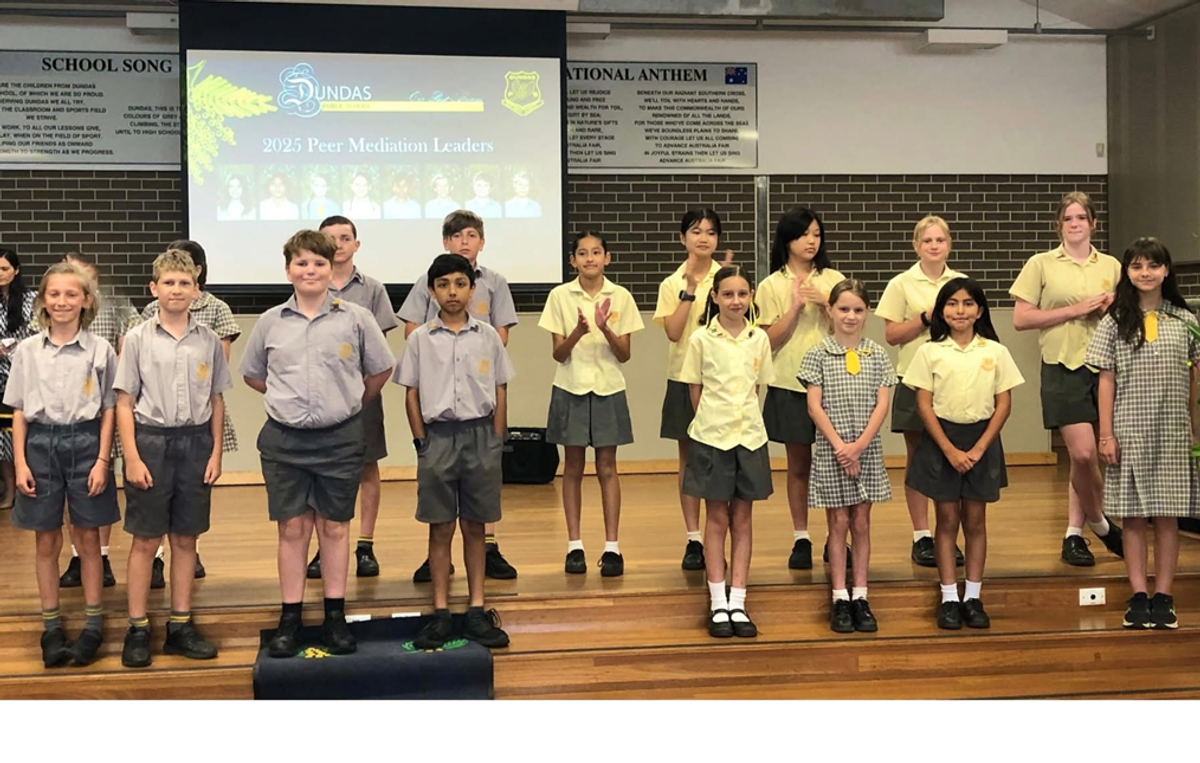

In an increasingly digital world, the transition to online student reports through Sentral marks a transformative step in enhancing the educational experience for both students and parents. One of the primary benefits of this system is the accessibility it offers; parents can easily access their child's reports from anywhere at any time, ensuring they stay informed and engaged in their child's academic journey. This immediate access fosters better communication between home and school, allowing for timely discussions around student performance and areas for improvement.
Moreover, online reports are not only eco-friendly, reducing the need for paper-based communications, but they also allow for the integration of interactive features. This comprehensive overview empowers families to support their children's learning more effectively.
Additionally, Sentral's online reporting system is designed to be user-friendly, with intuitive navigation that makes it easy for parents to understand and utilise the information presented. The ability to track progress over time through digital reports also encourages a growth mindset among students, as they can see their own development and set achievable goals.
In summary, the implementation of online student reports on Sentral not only enhances transparency and communication between schools and families but also supports a collaborative approach to education, ultimately leading to improved student outcomes.
Student reports should be live at approximately 3:30pm this afternoon. Below is a guide to assist families accessing the student academic reports using the Sentral Parent Portal app.
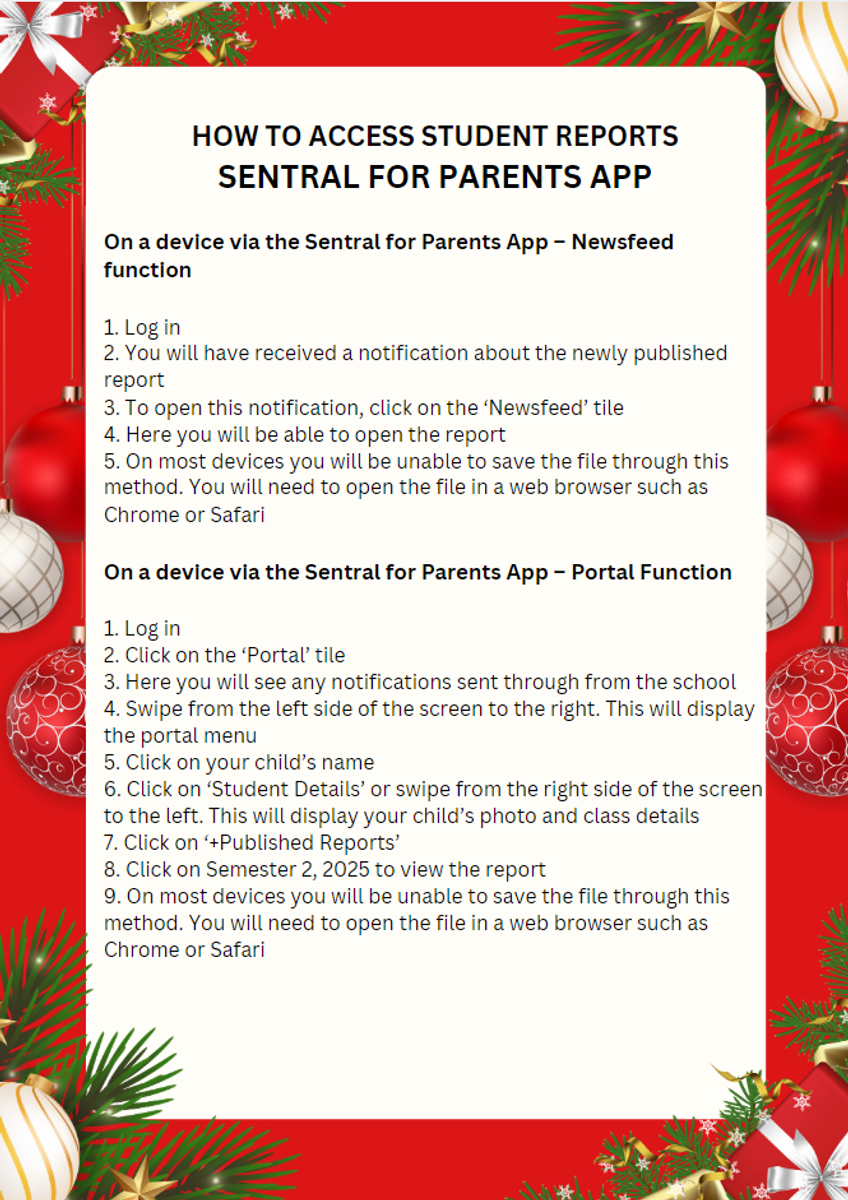

Historically, classes at Dundas Public School have been mostly single grade, with ‘composite’ classes containing two grade levels formed to address the problem of uneven grade enrolments. For 2025, we have made a philosophical decision to form stage-based ‘multi-age’ classes in Stages 1-3 (Years 1-6). The aim is the social and academic benefit of our students.
We anticipate that we will form three Stage 1 classes, three Stage 2 classes, a 4/5 multi-age class, and three Stage 3 classes. Kindergarten classes will remain just Kindergarten classes for 2025.
In K-6 schools, classes are organised in a variety of ways. Stage Based/Multi-aged classes are one type that may be used within schools as part of the class planning for a school year. Stage Based/Mutli-aged classes are commonly found in all schools, yet this structure can be quite different to a parent’s expectation for class structures because of their own experience of schooling.
The key to understanding staged-based classes is realising that growth is determined in stages and not by ages.
The syllabus documents (by which we teach) are in stages (and have been for over 20 years). Unfortunately publishing companies print their workbooks in ‘years’, which gives the community a false impression of teaching.
The curriculum is based on stages of learning from Kinder to Year 10. Each stage builds on the next stage. Curriculum content is organised around key concepts and skills.
Students revisit the same concepts every year, but it is expected that over time students will develop deeper understandings and greater proficiency and competence in applying the skills and processes.
For example, students in Stage 2 (Years 3 & 4) focus on the same concepts in history. Students in Stage 2 also focus on the same skills in history. Students in Year 3 are simply at the beginning of the stage and Year 4 students are working towards the end of a stage. Students have two years to demonstrate achievement of the stage standards.
Dundas PS is already teaching curriculum in stages. Dundas PS delivers curriculum in Early Stage 1 (Kindy), Stage 1 (Years 1 & 2), Stage 2 (Years 3 & 4) and Stage 3 (Years 5 & 6), and each stage is organised across a 2-year period, Year A and Year B.
For example, in Stage 2, classes currently in Year 3 and Year 4 are already being taught the same Stage 2 units of learning. Students participate in stage assessments, stage expos, stage excursions etc.
A benefit of this structure includes being able to spread students more effectively between classes. It is always a challenge to separate students from others due to the small number of classes in a grade. Having more classes across a stage ensures that students that need to be separated from each other can be, resulting in more settled classrooms, focused on learning rather than behaviour management.
Another benefit of the ‘Stages not ages’ approach is that no ‘one’ group is seen to be disadvantaged – all classes in each stage will be given the same opportunities, expectations and strategies.
It makes sense to group children who are going through the similar stage so they can relate, help and experience together. Even within the same class, children will be at different levels. Teachers recognise this and usually extend the work of those who learn more quickly and give more attention to those who don’t. The class then becomes outcome based rather than competition based.
Multi-age grouping creates an environment at school like that of home, resulting in greater continuity, thereby easing the transition to the school environment.
Multi-age grouping reflects the social environment of the work force, which is made up of all different ages.
How will being placed in a multi-age class impact my child?
Research shows there is no discernible difference between composite and 'straight' year group classes in terms of academic performance because every class is a composite class.
Research has shown that students benefit from class structures that focus on these factors. The NSW DET published the report Multi-Age Classes in NSW (1997, p.23). This report found that these classes, based on educational principles, do not disadvantage students academically and may benefit them socially and emotionally.
A study by Professor John Hattie (2003), which brought together the research from over 50,000 studies about what makes the biggest difference in enhancing student achievement, showed that composite or multi-age classes do not have any disadvantage for a child. If anything, they can have a positive effect when compared with other class structures.
What makes the biggest difference for students, instead, is the quality of the teacher, the nature of the school, its teaching and learning programs and the professional learning undertaken by its teachers.
Some other research:
CESE http://www.evidenceforlearning.org.au/toolkit/setting-or-streaming/ Department of Education
https://education.nsw.gov.au/media/cese/Multi-age-or-composite-classes2010-to-2016.pdf
Congratulations to all those students who received recognition this week at the 2024 Assemblies of Excellence assemblies. For those families who were unable to attend our Assemblies of Excellence this week, I thought I might include my 2024 principal speech.
Good morning, everyone. It is my pleasure to welcome you all to the 2024 K-2/3-6 ‘Assembly of Excellence’ at Dundas Public school. A time where we gather to celebrate excellence in all its forms. Before we recognise and celebrate student excellence, I would like to briefly address other areas of excellence at Dundas Public School that are also worth acknowledging.
Firstly, Excellence in our learning culture.
This year, the External Validation process determined that Dundas Public School had achieved excellence in our learning culture. In schools that excel, the school culture is strongly focused on learning and transitions, wellbeing, fostering educational aspirations and ongoing performance improvement throughout the school community.
Excellence in our academic results.
Students continue to achieve NAPLAN scores well above State and similar school groups in most NAPLAN assessments. Specific results worth mentioning for Year 3 is an improvement of 7% in one year in reading, 10% in writing, 11.5% in grammar & punctuation and an improvement of 12.5% in spelling. In Year 5, students achieved an improvement of 7.3% in one year in spelling and a whopping improvement of 14% in grammar & punctuation. I think you will agree that those academic results deserve a round of applause!!
We are continually looking to improve and have identified that next year we will need to look closely at our curriculum delivery practices in mathematics. As a result, in 2025 we will be introducing maths groups in stages 1-3 where we believe we can meet each child where they are and offer the relevant supports and mathematical challenges for students to reach their learning potential.
Excellence in our curriculum delivery.
This year, 3-6 teachers have implemented 2 new Syllabuses for English and mathematics at the same time which has been a huge undertaking. K-2 have had their second year with the new English and maths curriculums. I would like to thank our classroom teachers and leadership team for delivering the new syllabus documents with fidelity and rigour, ensuring we meet our school vision of having high expectations for academic excellence.
Excellence in supporting the whole child.
Dundas Public School proudly focuses on supporting growth of the whole child and offers students a plethora of learning and social experiences.
Programs such as The Anxiety Project where students learn to identify feelings of anxiety in themselves and help them to build their resilience.
Our Restorative Practices model to behaviour management allows students to be supported when mistakes are made as well as how they can restore harmed relationships with the people around them.
Extra-curricular programs offer students opportunities to cultivate leadership opportunities, develop new skills, work with others in teams and foster improved self-confidence.
Organised overnight school excursions for Stage 3 offer students the opportunity to take their learning from the classroom into the real world as well as develop maturity and independence away from family and home.
I have an exciting announcement to make for 2025 Stage 2 students. Next year, Stage 2 students will have the opportunity to attend their own overnight excursion. Mrs Chan has booked the ‘ZooSnooz’ camp for 1 night at Taronga Zoo where staff and students will camp out under the stars. They will fall asleep to the sounds of nocturnal marsupials and wake to the morning roars of tigers and lions. What an amazing experience!
I am so proud to be the principal of Dundas Public School. A school that continually strives for improvement and excellence.
To the wonderful staff at Dundas Public school. I am in awe of the teamwork, passion, and drive you demonstrate as you support our students with an unwavering dedication to improve learning and wellbeing outcomes for all our students.
As we know, circumstances in our lives change and for this reason, we say farewell and good luck to some much-loved staff members as their lives take a new direction. We say farewell to Mr Waters, Ms Nguyen and Mrs Govers who are all moving on to new schools next year and we wish them well.
Mr McSeveny has been successful in getting a teaching position much closer to home, which will require a lot less travel for him. Although we are sad to see him go, the staff and I know his new school will be forever thankful as they benefit from his professionalism, his expertise and experience as a leader, and his immeasurable value.
I would like to thank the P&C for the support and commitment that you continue to show Dundas PS. On behalf of the staff at Dundas PS, I would like to extend my appreciation for your continued support of our wonderful school and community.
I extend my sincerest gratitude to the professional staff and supportive parent community of our school. As a school community, we have remained focused and committed to our school vision which states that we partner with parents and the wider community to provide a quality education that values the future of all students. I wish everyone a safe, relaxing festive season and look forward to strengthening our partnership even further in 2025.
Thank you.
As we approach the end of the school year and the festive season, some families like to give small gifts to their teachers.
While cards with special messages and other small tokens of appreciation convey thoughtful appreciation, please be advised that NSW Department of Education policy allows staff members to accept gifts with a value at or less than $50 (unless it is a combined class gift valued at less than this amount per contributor).
Thank you for your understanding.
Term 1 | Friday 31 January to Friday 11 April. School development days are Friday 31 January, Monday 3 February, Tuesday 4 February and Wednesday 5 February. Students in Years K to 6 begin on Thursday 6 February. Autumn school holidays - Monday 14 April to Friday 25 April
|
Term 2 | Monday 28 April to Friday 4 July. School development days are Monday 28 April and Tuesday 29 April. All students K - 6 begin on Wednesday 30 April. Winter school holidays - Monday 7 July to Friday 18 July
|
Term 3 | Monday 21 July to Friday 26 September. The school development day is on Monday 21 July and all students K- 6 start on Tuesday 22 July. Spring school holidays – Monday 29 September to Friday 10 October
|
Term 4 | Monday 13 October to Friday 19 December. The school development day is Monday 13 October. All students K - 6 start on Tuesday 14 October. Summer school holidays (Eastern) – Monday 22 December to Monday 26 January 2026 |
Selective high school and opportunity class applications are open from 7 November 2024 to 21 February 2025.
Selective high school Year 7 entry in 2026: Apply when your child is at the end of Year 5 or the beginning of Year 6.
Opportunity class Year 5 entry in 2026: Apply when your child is at the end of Year 3 or the beginning of Year 4.
Selective high schools and opportunity classes are 2 of the ways the NSW Department of Education supports high potential and gifted students.
What are their benefits?
Selective high schools and opportunity classes are not zoned so you can apply to ones outside your local enrolment area.
Do you speak another language? Translated resources are available in 13 languages on our website: edu.nsw.link/shsoc_languages
Is a selective high school or opportunity class the right fit for my child?
A selective high school or opportunity class might be a great fit if your child:
Where are selective high schools (Year 7-12) located?
There are 4 types of selective high schools:
Search for a selective high school near you at Find a selective high school.
Where are opportunity classes (Year 5-6) located?
There are 2 types of opportunity classes:
Search for an opportunity class near you at Find an opportunity class.
Students successfully placed attend the opportunity class full-time in Years 5 and 6. In most cases, students who have accepted a place in an opportunity class will leave their current school to attend the school with the opportunity class.
Discuss the opportunity with your child and look through the information together on the Selective high schools and opportunity classes website and in the student resource hub:
Fair and equitable access
The Equity Placement Model helps make access fairer for more high potential students in our community.
We know that some students may be missing out because they experience educational disadvantage.
Under the model, up to 20% of places in each selective high school and opportunity class are held for:
These students still receive offers based on their performance in the placement test.
Learn more at Fair access.
The application process
Complete the online application.
Applications close on 21 February 2025.
Once your application has been submitted and processed, your child will need to sit a computer-based placement test. Learn more at Application process.
Ready to apply?
Apply online at shsoc.education.nsw.gov.au
Further information
Visit Selective high schools and opportunity classes.
Visit: education.nsw.gov.au/shs-oc
